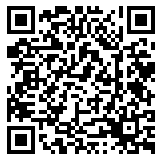How could the exclusive nature of property be theft? If one were to assume that the world at large consists of common resources and common welfare, there are certain logical and practical results that follow. Whether these resources are held in common among men, animals, plants, God, Gaia, etc. results in merely superficial differences. Logically, if a river, rock, oil well, or field of poppies is a common resource to all, individuals ought to be disincentivized, culturally, from taking from that resource. In all reality, if one believes that common resources exist (as opposed to either unowned and owned property) the inevitable conclusion is that “property is theft”. The fairy-tales of noble savages, taking only the fruit that had fallen from a tree and living in shelters made of driftwood and caverns seems to be the inevitable outcome of such a position.
I argue that even this outcome is insufficient, though. If we are going to consistently apply this rubric that property is theft by virtue of its exclusivity, than any act which would exclude access to a resource would be considered theft. (Side note to my AnCom friends, this is not a case of affirming the consequent as I mistakenly believed back in my commie days, but we don't have time for this discussion right now.) By discriminating who I work for, have sex with, or have a conversation with, I am preventing others from having access to the resources that are my labor, body, and mind. Not only is property theft, but so is any form of consumption, work, or even existence... which results in absurdity because letting oneself starve to death would be robbing the collective of one's intellect and labor.
This description, I guess, is not entirely fair. It is conceivable that one could make an argument that theft isn't categorically bad and that some level of theft produces sufficient utility to allow for it... but that's utilitarianism... which is moral nihilism, so we'll focus on more intelligent arguments. It is also conceivable that a system could be set in place which could allow for collective consensus. Theoretically, if 100% of the collective's members agree that a particular common resource ought to be invested in a particular manner, than one would be directed by the collective to invest it is said manner. The 100% consensus is crucial to this solution, though. If 99 people decide that a particular roll of toilet paper would best be invested by dividing it between collectivists numbered 001 through 035 but I'm collectivist 100 and I've got poo on my bum, I would likely disagree with the majority. If they go through on the plan to divide the roll of toilet paper amongst the senior collectivists, they are preventing me from having access to a collective resource. They are stealing the toilet paper from me. The majority has stolen from the minority and there is no amount of definitional gymnastics that can correct that.
The more inclusive a collective is, the more problematic consensus becomes. If the semi-intelligent collectivists had their way and the only intellectually consistent implementation of collectivism were to extend to all people, then the consensus of property use would be required from, at a minimum, the several billion humans on the planet. Assuming everyone plays by the rules (and that children are capable of consent) the human race would quickly starve down to a population small enough to achieve consensus, because economics. If we are to do as Pope Francis and other hippies do and begin involving God, cows, and soil bacteria in our collective ownership, though, consensus becomes impossible. God, cows, and bacteria are mute; they cannot vote on who gets to eat or clothe themselves. So, thanks hippie god, we collectivists get to starve now.
If I were to not try my hardest to come up with experientially viable premises from which one could conclude that “property is theft” in the vein of collectivist ideologies, I wouldn't be doing my due diligence. The issues we've run up against thus far are a result of assuming that one could own property and that collective ownership arises from individual ownership; while this is a standard application of philosophy (building from ontological simples to relationships of greater complexity), perhaps we could try the theological approach and work top-down. What if it is impossible for the individual to own property? Initially, I would say that all things are unowned. If all things are unowned, I'm not certain how something could be stolen. I guess we could define theft as “preventing access to”, and see if we get any new results.
Immediately, it is apparent that nothing changes from our initial attempt. “Preventing requested access to” might work better. If I discover food as I wander barefoot through the woods, it wouldn't be theft to eat said food, then. As a matter of fact, by turning it into energy for one cell of our collective, I am contributing to “the common good”. If Cacambo, the man who could not prevent my access to his service as a sherpa, also desires the food I have discovered, I must share. Initially, this makes sense; this actually most closely parallel's my formerly-held communist beliefs. For the sake of efficiency in such a world, it would make sense to build some sort of Rawlsian socialist government wherein rights are contingent upon the state's authority. For the ability to say “no” is ultimately the meaning of rights, and the collective consensus would be the enforcer of when it is culturally acceptable to say “no”. Sounds an awful lot like the moral nihilism of Hobbes' Leviathan, no? Electing kings to delineate and enforce “rights”?
Well, that's because it is. If one cannot deny others access to resources, even with exceptions granted by Rawls' utopia, one will ultimately wind up where we are in the American Empire and where we are heading. If I cannot deny my labor (taxes, cake bakeries, etc.), resources that I control and have access to (civil asset forfeiture, taxes, etc.), or even myself (social engineering, social justice cults, etc.), others can be expected to be constrained by the same rule. So, in the absence of 100% consensus, which has already been explored, we encounter the situation wherein I cannot deny your request to resources I am using or labor I can perform and, simultaneously, you cannot deny my request to the same. My request (and yours) is functionally equivalent to denying access to a resource, which is property (by our hypothetical definition) and therefore theft. In this way, we've come full-circle. This is moral nihilism because either theft is immoral and merely existing is theft and therefore immoral, or theft is not immoral and, based on our definition of theft and property, I can do whatever I want to anyone.
Therefore, property cannot be theft or, if it is, there is no reason to care. This negative determination, even informed by last post, isn't entirely satisfying; property is not theft, it is merely that to which one has access and over which one has control. I'm going to take my remaining space allotment to try and expound a positive case for property. All my usual qualifications apply: this case is not a necessary conclusion from the premises already laid out, this is not a categorical anarchist claim but only a claim made by an individual who happens to be an anarchist, I'm making this case for the sake of discussion and reserve the right to change my mind at a later time, etc.
I would go so far so as to say that the soundbite, “Property is theft,” is actually backwards. A soundbite that better fits my definition and determination is, “If it can't be stolen, it isn't property.” Of course, like all soundbites, this phrase is practically meaningless, it merely expresses the inverse case of the definition I provided last post.
More exciting and meaningful than soundbites would be the ideas of self-ownership and autonomy. Most anarchists, libertarians, Austrian economists, and the like often hinge their rhetoric and arguments on the principles of self-ownership. One can see why, based on the absurdities encountered while exploring collectivism and the attempted abolition of property, one would conclude that one must own oneself. If property is that to which one can lay claim, have access, and control over, who else could own one's self? Of course, it raises the question, “Can a person be property?” There is a lot of fodder here for linguistic and semantic inquiry in most extant languages concerning possessives as applied to the self; as much as I enjoy these discussions, though, I just want to make one quick philosophical point.
One definitional point of property I did not address last post is the transmissibility of property. In parallel to my earlier soundbite, if something cannot be transferred from one person to another, I am not certain that it could be considered property. So, if oneself is property, one must be able to forfeit control and access to one's self to another person. I would argue that, even in the case of slavery, in whatever form, one is merely separated from one's property or labor while still being oneself. I understand the utility of using self-ownership as a rhetorical shorthand, but, anti-prostitution rhetoric aside, one cannot “sell themselves”; ergo, one does not own oneself.
Bracketing centuries of metaphysics, what is a “self”? A materialist will tell you that your body and your self are identical. A dishonest materialist will tell you that your consciousness is your self and that it is an emergent property of the material arrangement of brain stuff. A lazy Christian will tell you that your self is your soul. A more rigorous Christian will at least say that your self is the unity of your body and soul. These answers, for all of the disparity in substance commitments seems to provide a consensus that the self is the specific arrangement of things that one has direct control over and access to and could not exist without. Based on that consensus, I would say that self-ownership is likely impossible, or problematic at best, but self-autonomy is a viable alternative that also fills the role that self-ownership does in AnCap philosophy.
TL;DR: Property cannot be theft. There is no way one could define property, or argue for collectivism, in such a way that does not quickly unravel into absurdity. If one finds oneself in a situation where people are shouting pithy one-liners at each other, a decent response to “Property is theft,” would be “If it can't be stolen, it isn't property.” Closely tied to issues with property and collectivism is philosophy of identity. In all reality, the breakdown in communication between collectivists and anarchists hinges on divergent commitments concerning identity, but that's a huge piece of work I'll have to chip away at slowly.


 RSS Feed
RSS Feed
